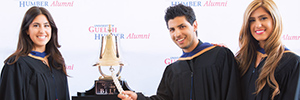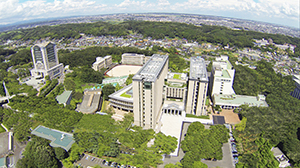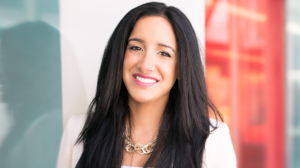- Future Students
- Current Students
- Faculty
- Staff
- Alumni
- Others
Four UofGH students present research on experiential learning at Soka University of America
Earlier this year, a group of four University of Guelph-Humber students presented research on experiential learning and how it relates to Soka (or value-creating) education at the annual Soka Education Conference, held at Soka University of America in Orange County, California.
The trip was part of the Soka Education Research Centre on Global Citizenship (SERC-GC), a five-year research project that allows UofGH students and faculty to study the philosophy and practices of Soka education and how it connects to global citizenship. Recently, the SERC-GC received an additional $150,000 in additional funding over five years from the Makiguchi Foundation for Education in Japan.
This trip was the third UofGH students have taken to Soka University of America.
"This was the second time our students presented SERC-GC's research findings at the Soka University of America conference. As with the first cohort, I saw amazing growth in all of the students; from the first meeting when they collectively knew very little about value creation theory, to the research planning meetings, to conducting the research and analyzing the data," said Family & Community Social Services Program Head and SERC-GC Director Dr. Paul Sherman.
"Their presentation at SUA, which was at a very high level for undergraduate students, was the perfect culmination of a research group working hard and coming together to achieve both individual and group success. I was very proud of them all as representatives of UofGH."
For their research project, titled “Framing Postsecondary Students’ Perspectives on Experiential Learning within Soka Education Theory,” the group – Justice Studies student Afifa Abbaszadeh, Family & Community Social Services student Sophie Martin and Psychology students Sarah Belyk and Heba Elgharbawy – interviewed UofGH students about courses that involve experiential learning.
“Throughout the entire project, Heba, Sophie, Afifa and Sarah were so dedicated to their role and to the research, that to see it all come together the way it did, is something to definitely be proud of,” said Family & Community Social Services Instructor and SERC-GC Senior Research Supervisor Olivia Boukydis. “Public speaking isn't easy at the best of times, but for them to do it in a professional setting such as the Soka University of America Conference, it reaches a different level.
“To think about what it takes to present original research to a group of people, many of whom are well-versed on the subject matter (Soka Education), it can be intimidating.”
Further, Boukydis notes, the students also fielded questions from the audience.
“I knew they would do well, so it wasn't so surprising – but what really impressed us was how well they facilitated dialogue, engaged the participants through discussion and how well they responded to participants and answered questions,” she added.
“Keeping participants engaged, proving concepts through application exercises and discussion as well as answering questions, these are elements to public speaking you simply can't prepare for. You have to just trust what you know, keep an open-mind to how others respond and approach it all with confidence, which they did. In my mind, this is really where they stood out.”
Student views
After returning, several of the students who presented on the trip shared their experiences.
Sarah Belyk, Psychology
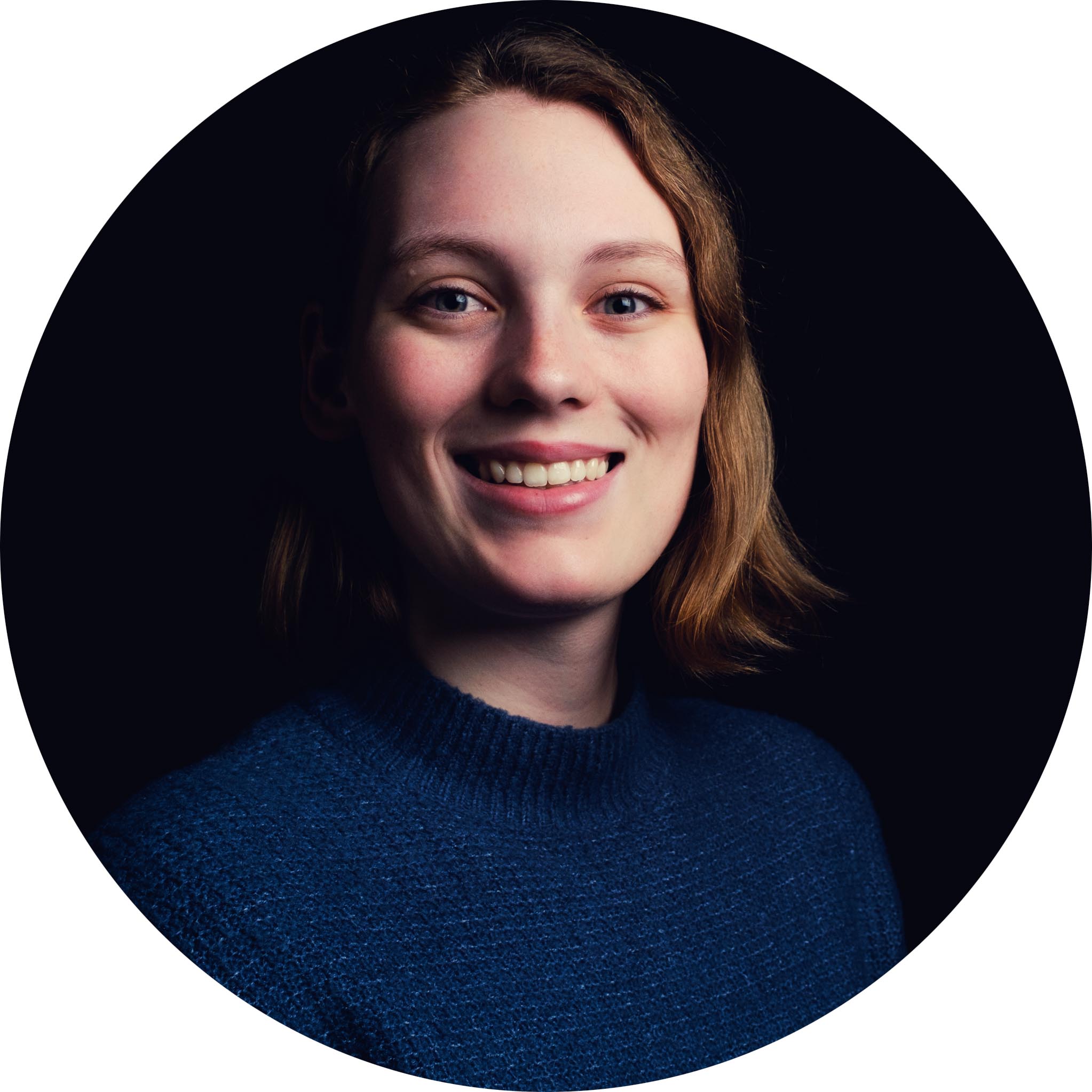
Getting genuine experience as a research associate was really rewarding.
Why did you decide to participate in this research project?
I was interested to learn about Soka education. As a psychology student I am always looking for theories and philosophies that I could use to help me assist future clients, so learning about Soka sounded like a good step forward. I went on the study abroad focusing on Soka education and was completely enamored by the people I met and learning about the different ways Soka could be used. Though at this point I was already signed up for the team, I was glad for the chance to continue exploring Soka closer to home.
What did you enjoy most about this research project?
I honestly enjoyed the whole process. From organizing class visits to conducting interviews, even the long coding sessions! A lot of this process I learned about in class, so getting genuine experience as a research associate was really rewarding. I also really enjoyed spending time with the team; my fellow associates were all incredibly smart and hardworking individuals, and both Paul and Olivia were a joy to work for. I don’t think there is a single thing I didn’t like about the research project.
What was the highlight (or highlights) of your trip to Soka University of America?
I think my absolute favorite part of the of the trip was getting to see the other presentations and learning about all the different ways people think to apply Soka. We had a huge variety of unique presentations, from menstrual rights to teaching in the Amazon rainforest, and seeing how each unique situation could make use of Soka Education was really interesting. It was also really great getting to talk with so many people and learning about their lives and how Soka has affected them. Everyone we met were kind people who showed a genuine interest in not only our research, but in us as people! The trip was a truly unique experience, that I am so grateful I was able to experience it.
Heba Elgharbawy, Psychology
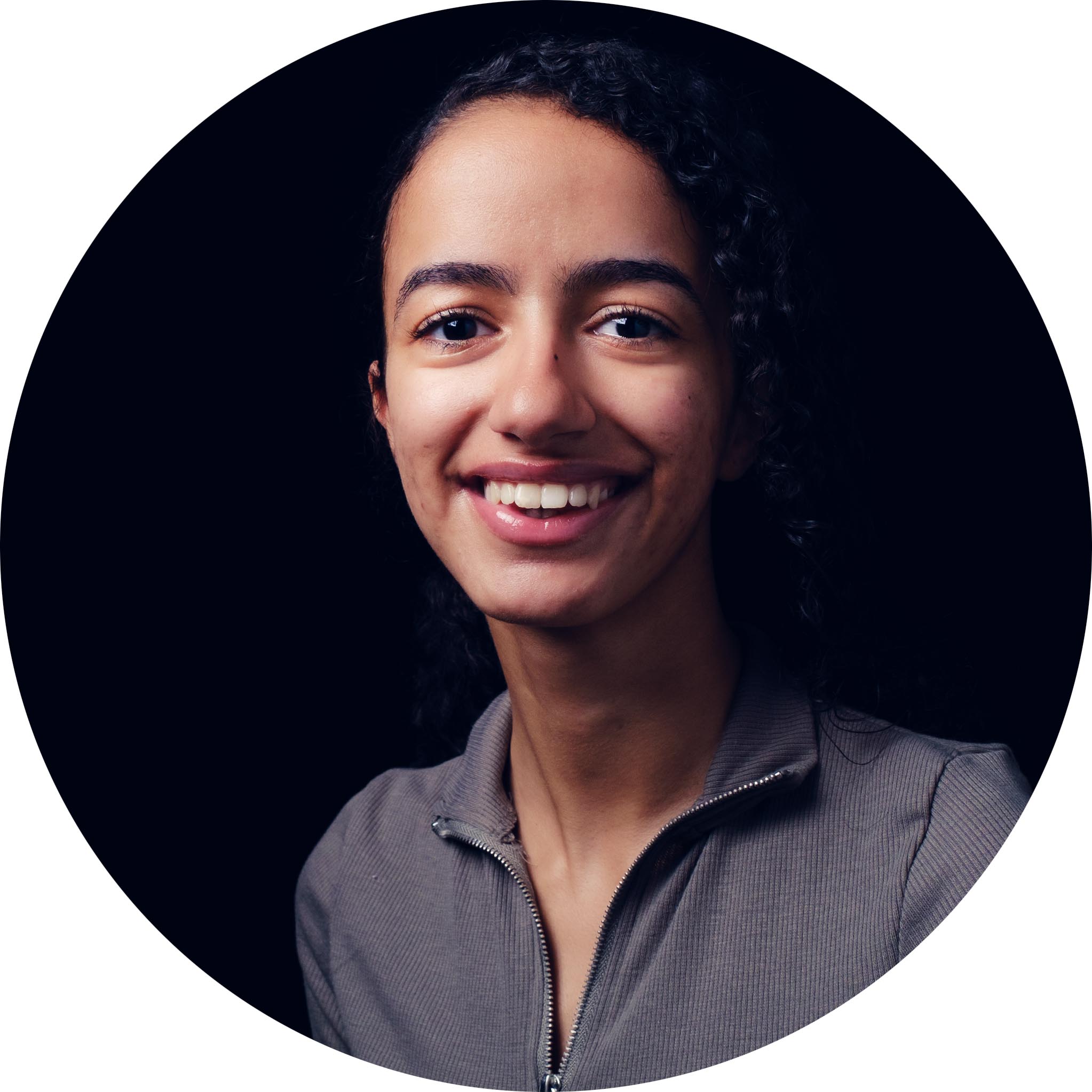
This project has allowed me to gain a wide variety of skills in research and conference presentation.
Why did you decide to participate in this research project?
I had applied to be a part of UoGH’s annual Study Abroad course to Japan where we learn about Soka Education and the pursuit of happiness. I was interested in Soka after reading more about it for the purpose of the course and realized how I have seen these concepts applied throughout my schooling and was surprised that we did not have Soka promoted and applied more in Canada. When I saw this research opportunity, I thought it was a great way to learn more about Soka education, use my research experience and gain more of those skills, and do my part to contribute to the field to hopefully have Soka pedagogy used more often in Canada for the betterment of students.
What did you enjoy most about this research project?
This project has allowed me to gain a wide variety of skills in research and conference presentation. I have been lucky enough to meet people who are also interested in Soka, have expertise in the area, and have unique insights and perspectives on how Soka can be applied to different fields.
What was the highlight of your trip to Soka University of America?
I really enjoyed getting to meet students and academics from all over the world who had different insights and very creative ideas on how Soka education is and can be applied to improving society and fighting social issues. It was inspiring to see how they were all so passionate about and truly embody the principles of Soka education in ways I had never even thought of. It just solidified to me how important this work and Soka education truly is.
Sophie Martin, Family & Community Social Services
Why did you decide to participate in this research project?
The Soka research was the first research project I had taken part in. I had enjoyed small scale research in the past, and when I heard of the opportunity from Paul Sherman, I wanted to jump in and learn more from experience. From the little I knew about Soka education, I knew that it interested me and I wanted to pursue the research position. I am so thankful that I did, because I grew so much from the experience.
What did you enjoy most about this research project?
There were so many things that I enjoyed! It was an amazing learning experience, both about Soka itself, and the whole research process from start to finish. I loved interviewing students and getting to know the research team over the two semesters. However, what I enjoyed most was seeing the project come together at the end in our presentation at the Soka University of America. It was so fulfilling to present our findings to a wonderful group of amazing individuals who were interested in our project and asked insightful questions. By the end of the project, I could see the benefit of Soka education so clearly, and it was a wonderful process to start talking about future applications for our findings.
What was the highlight (or highlights) of your trip to Soka University of America?
One of the biggest highlights of the trip was interacting with conference attendees at the university. Having conversations about their experiences with Soka education solidified my belief in the good of the pedagogy. The attendees were all attentive during our presentation and asked great questions.
It was also a highlight to be able to answer all of the questions that they asked! It was something we were a bit nervous for, but between the group of us, we were able to answer all of the questions well.
And to top it all off, California landscape did not disappoint! We couldn’t have asked for a better location for an amazing trip.




